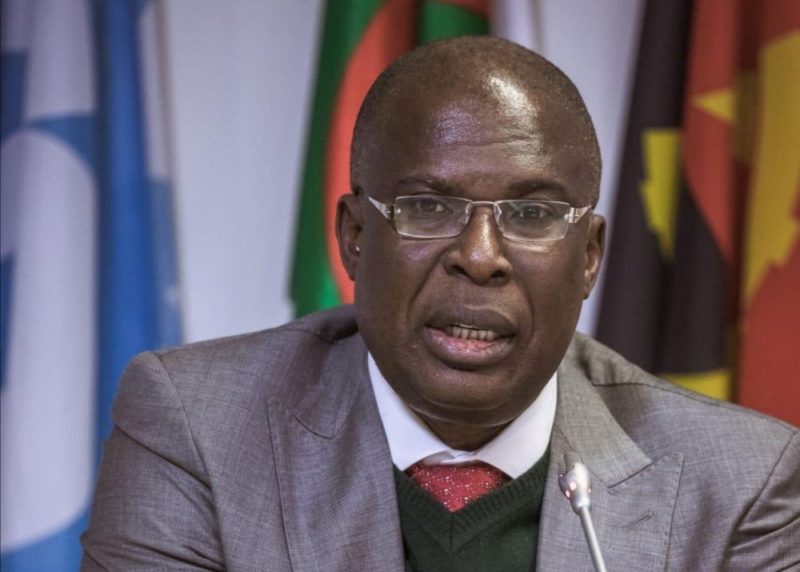The Federal Government will stop the payment of subsidy on petrol when President Muhammadu Buhari gives his assent to the Petroleum Industry Bill.
President Muhammadu Buhari is expected to receive the harmonised version of the Petroleum Industry Bill this week.
Advertisement
The PIB was passed into law last week by the National Assembly nine months after it was submitted by the President to the parliament.
The passage of the bill came with some areas of disagreement between the House of Representatives and the Senate.
The development led to the setting up of a panel to harmonize the contentious areas.
The panel will in a joint meeting with their counterparts at the House of Representatives, harmonise the report of the PIB and laid same on the floor on Tuesday (Today).
Advertisement
The Minister of State for Petroleum Resources, Chief Timipre Sylva, said this while speaking at the Nigeria/Organisation of Petroleum Exporting Countries: 50 Years of Partnership press conference in Abuja insisted that it was best for Nigeria that the Federal Government discontinued subsidy on petrol.
He stated that the recently passed PIB had no provision for subsidy.
The minister said, “This (subsidy removal) is desirable for the interest and growth of Nigeria. Of course, everybody will have their perspectives, but from where I sit, I believe that subsidy removal is the best thing for Nigeria, not just the industry.
“So far, the discussions with stakeholders are still ongoing. But I will also bring it to your attention that today, when the President assents to the PIB, subsidy will become a matter of law, because it is already in the PIB that petroleum products will be sold at market determined prices.”
Sylva added, “The removal of subsidy has the potential of unlocking a lot more funds for deployment to development. Unfortunately, what we are doing by way of subsidy is like cutting our nose to spite our face.”
Advertisement
The petroleum minister further noted that the government would begin the rehabilitation of the Warri and Kaduna refineries soon in order to increase domestic refining of petrol and to cushion the impact of subsidy removal.
If the government eventually stops subsidizing PMS, Nigerians may buy the product at the market determined price of N256 per liter.
The Minister of Finance, Budget and National Planning, Zainab Ahmed, had during the public consultation of the Medium Term Expenditure Framework/Fiscal Strategy Paper for 2022-2024 said that a whopping sum of N900bn will be spent next year in subsidizing the Price of Premium Motor Spirit.
The Minister described the amount spent on subsiding petrol as a drain on the economy, adding that such would have been spent on more productive sectors of the economy such as health, education and infrastructure.
Ahmed had said, “This (fuel subsidy)is costing us big time.
We are spending over N150bn on subsidy, that means NNPC has to use that amount of money to pay for PMS and distributing it. That is money that the federation account can share.
“This is money that could have been available for education, health and infrastructure. reduce our borrowing, increase the amounts that states and local governments are collecting.
Advertisement
“We are being penny wise pound foolish to think that by giving this subsidy, that citizens are benefitting. But by the end of the day, the citizens are actually the ones that are carrying the brunt of the wealthy.”
The Finance Minister lamented that while subsidy was supposed to be enjoyed by the poor, those that are actually benefiting from it are the rich people in the society.
She added,
“Some (the rich) have two, three, four cars and they are the ones that we are subsidizing.
It is not helping the farmer who needs a bus from his farm to the market.
But we need to get rid of subsidy completely, although it is not a popular view with labour.
“Right now, , we are subsidizing consumption in Nigeria, we sell at N165 per liter when our neighbors are selling at N500 per litre. It is only the marketers that are benefiting by taking this product from from Nigeria and selling it across borders. The common man is not benefiting.
“The transition is not an easy one if we have to remove the subsidy. What are the alternatives? What can we provide for Citizens? So we are projecting we’ll be paying at least N900bn subsidy for next year.
“Imagine what we could have done with that amount. How many schools you can build, how many health center.
It is not wise, it is not wise because we are hurting our economy.”
An analysis of the 2022 Federal Government spending showed that the projected subsidy budget of N900bn is higher than the N292.7bn for sinking fund, N750.03bn personnel cost for Government Owned Enterprises, and N335bn overheads cost,
It is also higher than the N261.2bn budgeted for overhead costs for Government Owned Enterprises; N567.02bn for pension, gratuities and retirees; and N366.13bn capital supplementation budget.
The International Monetary Fund had last month raised concerns on the resurgence of fuel subsidies, as it reiterated the importance of introducing market-based fuel pricing mechanism.
This was disclosed by the IMF team led by Ms. Jesmin Rahman via a statement issued after a virtual meeting with the Nigerian authorities.
In the statement, the institution emphasised the need to deploy well-targeted social support to cushion any impact on the poor.
“The mission expressed its concern with the resurgence of fuel subsidies. It reiterated the importance of introducing market-based fuel pricing mechanism and the need to deploy well-targeted social support to cushion any impact on the poor.
“The mission recommended stepping up efforts to strengthen tax administration to mobilize additional revenues and help address priority spending pressures,” it stated.



